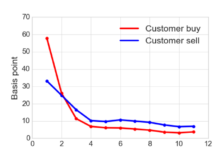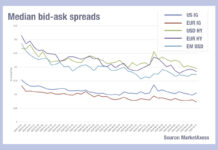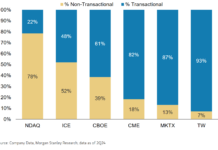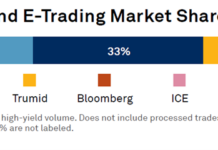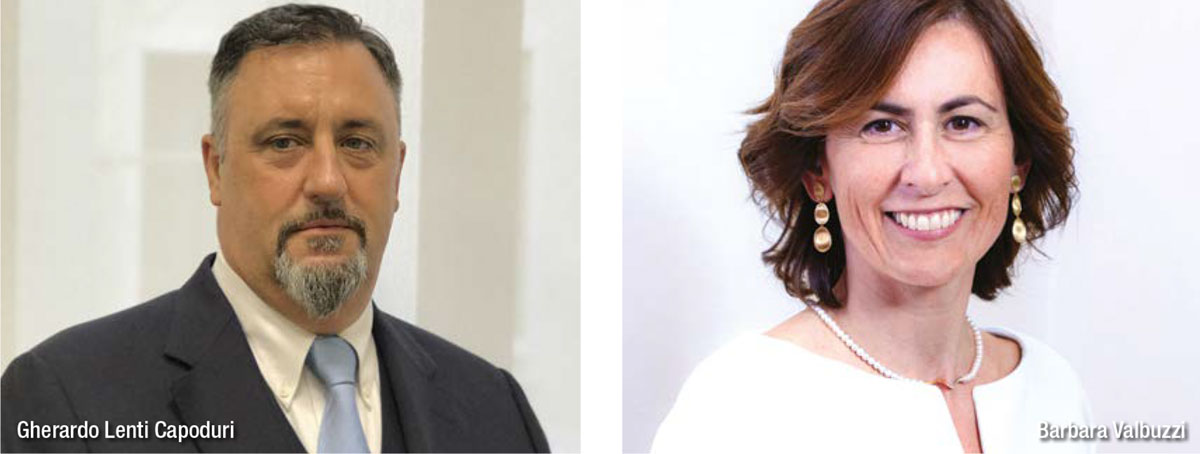By Gherardo Lenti Capoduri, Head of Market Hub, and Barbara Valbuzzi, CFA, Head of Market Strategy, IMI CIB Division, Intesa Sanpaolo.
In recent years the sellside has dedicated more and more attention to the client, and less to the mere trading execution, with an increased focus on the analysis of clients’ behavioural habits and needs, and to the identification of the broader range of services to address them. This originated from the acknowledgment that client satisfaction largely affects the outcome of the buy-side/sell-side interaction, transforming a challenge into a key competitive advantage.
Big Data analysis offers a unique opportunity for banks to better understand their clients and improve their experience by gaining access to a large amount of data related to what they do and what they want. It represents an opportunity to use analytics to unlock key information and provide clients with what they really expect and need. Customer relationship management (CRM) tools allow banks, insurance companies, and wealth management firms to store client data and leverage it to build stronger collaboration, where customer feedback is key to transform it in a strong long-term partnership.
As part of a broader strategy meant to respond effectively to the needs of our institutional clients, Intesa Sanpaolo and the IMI Corporate & Investment Banking Division launched “Cardea”, a new portal dedicated to financial institutions. Cardea derives its name from the Roman goddess of doors and hinges, to represent the gateway for clients to timely information and targeted insights into the main financial markets.
The need of a financial portal derives from the gradual change in client expectations and investment behaviour. This has led us to offer a comprehensive and user-customisable online hub that aggregates in a single place real-time market data, research and market commentary, real-time news and the option to trade on listed markets for users with Market Hub credentials.
We have created Cardea in order to respond effectively to the needs of our financial institutions clients by offering them, through a single point of access, all the information they need to formulate and implement their investment strategies.
Cardea’s launch is part of the philosophy behind Intesa Sanpaolo, which includes digitalisation and client satisfaction, as the cornerstone of the group’s strategy, enhancing the distinctive contribution dictated by the technology progress acceleration and by changes in buyside behaviour.
Also, trading is made easier, as the portal enables clients to execute orders or place orders on the markets, with an increasingly cutting-edge, digital range of high value-added and technologically advanced services to facilitate their operations.
All the contents are customisable, starting from the homepage that offers an overview on what is available on the portal, making it adaptable to the needs of each individual user. Customers can select and organise content based on their preferences and needs, including searches and news by asset class or instrument. The Watchlist section also allows users to select specific stocks of greatest interest, like a virtual investment portfolio.
Communication language is the key for success: it must be easy, interactive, “social” and tailored to the range of multiple contents the bank wants to offer clients to enable them to achieve their goals. Several content offerings in Cardea, including reports produced by analysts, economists and strategists, are also available in video and podcast formats. Real-time news on financial markets can be accessed through articles, live TV and videos.
An insourced, solution, like Cardea, allows the sellside to offer clients a more distinguished “style and identity”. Outsourced solutions such as multiple data shared platforms provided by vendors, are probably an easier and cheaper solution, but communication language and interface are standardised and client experience is lower.
Cardea aims to represent an insight into the Italian market with the “Italy Focus” section. It offers a wide range of focused data, news and research for those clients that want to better understand and trade the Italian financial market. In this way, Intesa Sanpaolo – IMI CIB Division wants to reaffirm its role as regional champion for international institutional clients.
The offer of a financial portal does not mean replacing traditional voice interaction between the sellside and the buyside. Instead, it means proposing an additional and enhanced way to interact with a client base increasingly attracted by digital solutions.
Data aggregation costs, market fragmentation, and operational complexity represent key challenges for clients. A financial portal provided by their broker might be a solution to mitigate or to avoid them. Each interaction and touchpoint impacts client satisfaction and loyalty in a different way and on a different level.
Technology has supported financial markets for decades, making them more efficient and reducing operating and market risk. Not only has electronic trading and data access increased, but even relationships are more and more managed with technology. This trend has been exacerbated by the Covid-19 emergency, introducing new ways of communicating and building relationships. Probably the changes in how we work with our colleagues, clients and trading counterparties will never be reversed to pre-pandemic times.
Sure, technology has elevated consumer expectations for convenient, on-the-go experiences, but it has also reaffirmed the importance of human-to-human contact. If a client interacts with a service team often, that team may become the daily interface of the bank.
Looking forward, financial portals may represent a single block of a future wider, interconnected and digitalised community network, comprising the buyside, sellside, trading platforms and vendors, to create a new financial markets infrastructure for the future.
©Markets Media Europe, 2022
TOP OF PAGE


